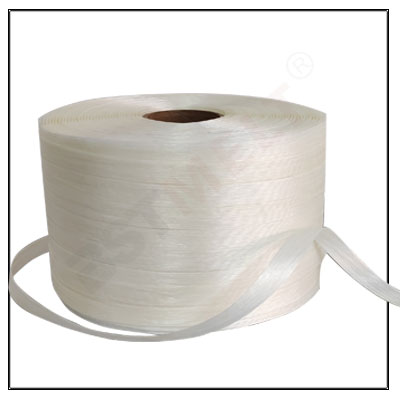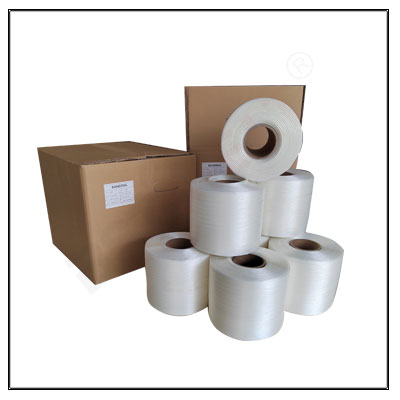Baler Straps: A Cost-Effective and Reliable Alternative to Twine Rope
In industries that handle large volumes of bales or compacted waste, ensuring the safe and secure transportation of these materials is a top priority. Traditionally, twine rope has been a popular choice for binding bales due to its simplicity and availability. However, with advancements in strapping technology, baler straps have emerged as a superior alternative, offering enhanced resistance and strength while remaining economical. This article explores why baler straps are quickly becoming the go-to solution across industries such as agriculture, recycling, and waste management.



The Drawbacks of Twine Rope
Twine rope has been used for decades to secure bales of hay, straw, cardboard, and other compacted materials. While it serves its purpose in some applications, it comes with significant limitations. Twine rope lacks the tensile strength and durability required to hold heavy or densely packed bales securely, especially during transportation. The risk of breakage or slippage is high, which can lead to damaged goods, increased waste, and even safety hazards.
Moreover, twine rope is susceptible to environmental factors such as moisture and UV exposure, which can weaken its integrity over time. For industries that require reliable and long-lasting binding solutions, these shortcomings make twine rope an inadequate option.
The Advantages of Baler Straps
Superior Strength and Resistance
Baler straps are specifically designed to withstand the stresses of heavy and compacted loads. Their high tensile strength ensures that even the densest bales remain securely bound during handling and transportation. Unlike twine rope, baler straps maintain their integrity under tension, reducing the risk of breakage or slippage.Shock Absorption
During transportation, bales are often subjected to sudden movements, vibrations, or impacts. Baler straps excel in absorbing these shocks, preventing the strap from snapping and keeping the load intact. This is particularly beneficial for industries that transport goods over long distances or rough terrain.Moisture and UV Resistance
Unlike twine rope, which degrades when exposed to moisture or prolonged sunlight, baler straps are made from durable materials that resist environmental factors. This makes them ideal for outdoor use, ensuring that bales remain secure even in adverse weather conditions.Ease of Use
Baler straps are lightweight and easy to handle, making the binding process quicker and more efficient. They can be applied manually or with simple tools, saving time and labor costs compared to other binding methods. Additionally, their smooth texture minimizes the risk of injury to workers, further enhancing workplace safety.Cost-Effective Solution
While baler straps offer superior performance, they are also an economical choice. Their durability and resistance to wear mean fewer replacements are needed, reducing material costs over time. Furthermore, their ability to secure bales more effectively can lead to fewer damaged goods and less waste, contributing to overall cost savings.
Applications Across Industries
Agriculture
Farmers rely heavily on baling for managing hay, straw, and other agricultural products. Baler straps provide the strength and reliability needed to secure these materials during storage and transport, ensuring they arrive in good condition. Their resistance to environmental factors also makes them suitable for outdoor storage.Recycling
Recycling facilities handle large quantities of compacted cardboard, plastic, and metal. Baler straps are essential for securing these materials into dense bales, making them easier to transport and process. Their shock-absorbing properties help prevent breakage during handling, improving efficiency and reducing downtime.Waste Management
In waste management operations, baler straps are used to bind compacted waste materials, such as paper, plastics, and textiles. Their strength ensures that even heavy or irregularly shaped bales remain securely bound, minimizing the risk of spills or accidents during transportation.Logistics and Warehousing
In logistics, securing loads is critical to maintaining the integrity of goods during transit. Baler straps provide a reliable solution for bundling materials or securing pallets, ensuring that products reach their destination safely and intact.
Why Businesses Are Switching to Baler Straps
The increasing adoption of baler straps across industries highlights their effectiveness as a binding solution. Businesses are recognizing the advantages of enhanced strength, durability, and cost savings that baler straps offer over traditional methods like twine rope. Additionally, the ease of use and improved safety make them a practical choice for organizations looking to streamline their operations.
Environmental Benefits
Many modern baler straps are made from recyclable materials, aligning with the growing demand for sustainable practices. By choosing recyclable strapping solutions, businesses can reduce their environmental impact while maintaining operational efficiency. This not only helps meet regulatory requirements but also enhances their reputation among environmentally conscious customers and partners.
Conclusion
Baler straps are redefining how industries secure bales and compacted waste. With superior strength, resistance to environmental factors, and cost-effective performance, they offer a clear advantage over traditional twine rope. Whether in agriculture, recycling, or logistics, businesses are increasingly relying on baler straps to improve efficiency, reduce costs, and enhance safety. As a versatile and durable solution, baler straps are poised to become the standard for load securing in modern industrial practices.
HomeNewsProductsSolutionDisclaimersPrivacyCooperationContact Us
Copyright © 2023 BSTSTRAP


